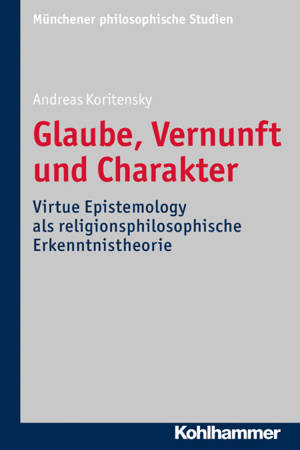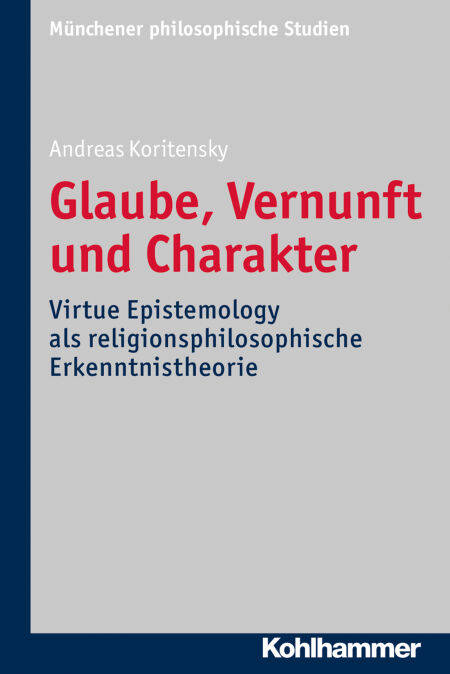
- Afhalen na 1 uur in een winkel met voorraad
- Gratis thuislevering in België vanaf € 30
- Ruim aanbod met 7 miljoen producten
- Afhalen na 1 uur in een winkel met voorraad
- Gratis thuislevering in België vanaf € 30
- Ruim aanbod met 7 miljoen producten
Zoeken
Glaube, Vernunft und Charakter E-BOOK
Virtue Epistemology als religionsphilosophische Erkenntnistheorie
Andreas Koritensky
E-book | Duits
€ 31,99
+ 31 punten
Uitvoering
Omschrijving
The role played by epistemic virtues in the formation of convictions was long neglected in epistemology. The same also applies to the analysis of faith. To address the issue, this study draws on recent approaches to epistemology that are know as "virtue epistemology" and offer a new solution to the problem. In this view, epistemic concepts do not have to be examined purely cognitively, but also have to be related to characteristics and dispositions of the perceiving subject - namely, attitudes and character traits that lead to the formation of convictions. For this purpose, the potentials of virtue epistemology in the philosophy of religion for analysing the concept of faith are examined, while on the other hand the focus on a purely intellectualizing justification of religious convictions is corrected - so that a plurality of forms of conviction formation emerges in which epistemic virtues also play an indispensable role. This clearly marks the way in which faith and lifestyle, epistemology and anthropology belong together.
Specificaties
Betrokkenen
- Auteur(s):
- Uitgeverij:
Inhoud
- Aantal bladzijden:
- 204
- Taal:
- Duits
Eigenschappen
- Productcode (EAN):
- 9783170344747
- Verschijningsdatum:
- 19/12/2017
- Uitvoering:
- E-book
- Beveiligd met:
- Digital watermarking
- Formaat:

Alleen bij Standaard Boekhandel
+ 31 punten op je klantenkaart van Standaard Boekhandel
Beoordelingen
We publiceren alleen reviews die voldoen aan de voorwaarden voor reviews. Bekijk onze voorwaarden voor reviews.







